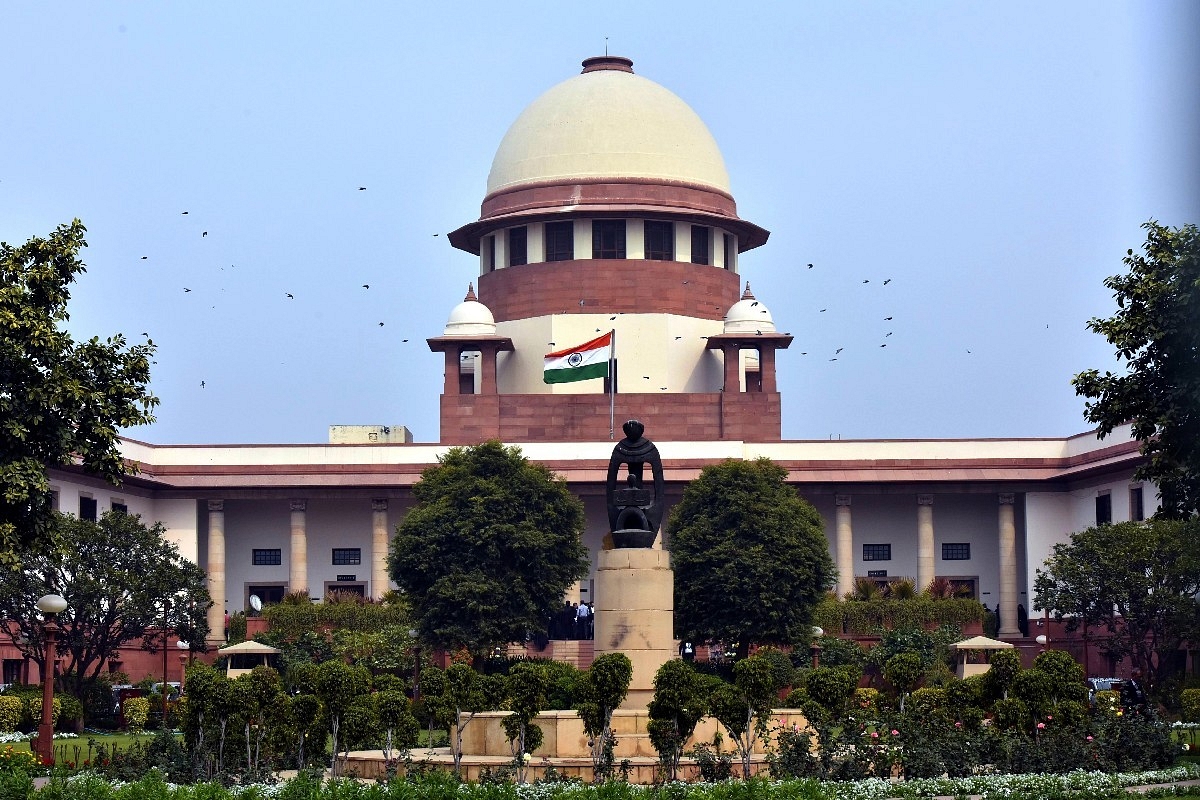Legal
Same-Sex Marriage Verdict Today: Here's What Has Happened So Far

Supreme Court of India (Sonu Mehta/Hindustan Times via Getty Images)
The Supreme Court is set to deliver its highly anticipated judgment on petitions seeking legal recognition for same-sex marriage today (17 October).
The five-judge SC bench, led by CJI D Y Chandrachud and including Sanjay Kishan Kaul, Ravindra Bhat, Hima Kohli, and PS Narishma, has insisted that it was solely examining the legal aspects of the Special Marriage Act and the Foreign Marriage Act, and not recognising non-heterosexual marriages.
Consistently opposing the recognition of same-sex marriage, the government has labeled it as an urban elitist concept and argued that the decision and debate on this issue should be left to parliament.
On 11 May, a ten-day marathon hearing concluded with the five-judge Constitutional Bench, headed by CJI Chandrachud, reserving its judgment on the petitions for legal recognition of same-sex marriage.
The Centre is challenging the maintainability of over 21 petitions that seek legal recognition of same-sex marriage.
It argued that the courts do not have the authority to create or recognise marriages through judicial interpretation or legislative amendments.
The apex court has clarified that it will not interfere with personal laws, such as the Hindu Marriages Act, and will only focus on the Special Marriage Act.
Justice Sanjay Kaul stated that sometimes "incremental changes in issues of societal ramifications are better". "There is time for everything," he added.
The Centre contended that marriage is exclusively a heterosexual institution and that those advocating for marriage equality are urban elites. The Supreme Court strongly objected to this argument, questioning the lack of data to support it.
Senior Advocate K V Vishwanathan then presented the case of his client, a transgender person who had been disowned and forced to beg on the streets, seeking recognition of same-sex marriages.
The Centre's argument that a person's gender is defined by their biological gender was challenged by CJI Chandrachud.
"There is no absolute concept of a man or an absolute concept of a woman at all. It's not the question of what your genitals are. It's far more complex, that's the point. So even when the Special Marriage Act says man and woman, the very notion of a man and a woman is not absolute based on genitals," the CJI said, NDTV reported.
The Bar Council of India had requested that the issue of same-sex marriages be left to the parliament, citing opposition of such marriages by vast majority of people.
During the hearing, the Centre agreed to a committee led by the cabinet secretary to explore the possibility of granting legal rights to same-sex couples without recognising their relationship as a marriage.
The Supreme Court had wanted executive guidelines to be issued to same-sex couples to enable them to have financial security, such as opening joint bank accounts as spouses, provident funds, etc.
Support Swarajya's 50 Ground Reports Project & Sponsor A Story
Every general election Swarajya does a 50 ground reports project.
Aimed only at serious readers and those who appreciate the nuances of political undercurrents, the project provides a sense of India's electoral landscape. As you know, these reports are produced after considerable investment of travel, time and effort on the ground.
This time too we've kicked off the project in style and have covered over 30 constituencies already. If you're someone who appreciates such work and have enjoyed our coverage please consider sponsoring a ground report for just Rs 2999 to Rs 19,999 - it goes a long way in helping us produce more quality reportage.
You can also back this project by becoming a subscriber for as little as Rs 999 - so do click on this links and choose a plan that suits you and back us.
Click below to contribute.
Latest